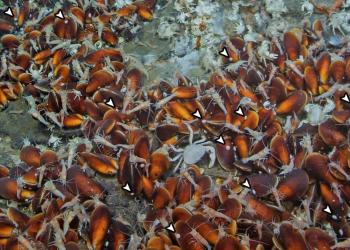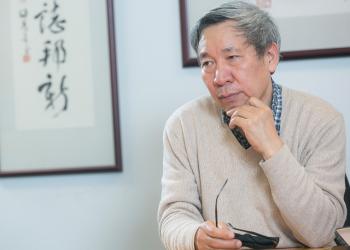News & Stories
2021

Stories
Goodbye to the Terror of Eye Injections
People who suffer from diabetic retinopathy and macular degeneration would usually be treated with intravitreal eye injections — a procedure to deliver drugs directly to the eye using a thin, tiny needle. This invasive treatment involves a certain degree of risk and the scary-looking procedure is surely not for the fainted heart. Langston SUEN and his fellow researchers at HKUST explored an alternative method of non-invasive drug delivery using ultrasound as part of his PhD studies at the University. Now he is working with pharmaceuticals to bring the technology to market.

News
Research jointly led by HKUST and HKBU Unlock Biogeographical Secrets of Deep-sea Limpets
Researchers from The Hong Kong University of Science and Technology (HKUST) and Hong Kong Baptist University (HKBU) have decoded for the first time the demographic history, genetic structure, and population connectivity of a deep-sea limpet widely distributed in vent and seep ecosystems in the Northwest Pacific. This study not only enhances our knowledge of the historical population divergence and contemporary gene flow of deep-sea organisms under the intricate interactions amongst local habitats, seafloor topography, and ocean currents, but also serves as a scientific basis for better conservation of marine biodiversity and more effective environmental management.

News
HKUST Pioneers with HKEX in Sustainable Finance Education
The Hong Kong University of Science and Technology (HKUST) today announced its partnership with Hong Kong Exchanges and Clearing Limited (HKEX) to pioneer a course on Sustainable Finance. The HKUST-HKEX partnership reflects a joint effort to nurture the next generation of talent for one of the fastest growing segments in today’s investment and fund management industry and in support Hong Kong to be a global green finance hub. This is the first time that HKEX partners with a university in Asia in offering an executive education course in this important field.
News
Personalized Real-time Air Quality Informatics System for Exposure – Hong Kong (PRAISE-HK)
HKUST Institute for the Environment (HKUST-IENV) today released the “PRAISE-HK-EXP App” – a new mobile app that help users analyze their personal air pollution exposure budget, from outdoor, indoor, to different micro-environments including various modes of transportation, so that they can better manage their exposure to air pollution in different micro-environments. Thanks for the HSBC 150th Anniversary Charity Program, the PRAISE-HK system has three major release milestones for the mobile app:












